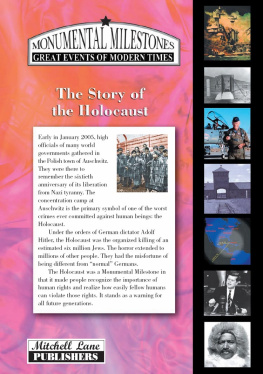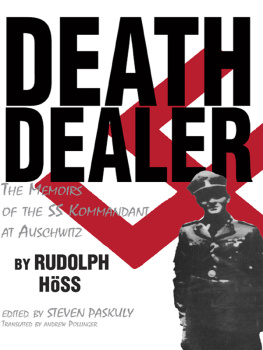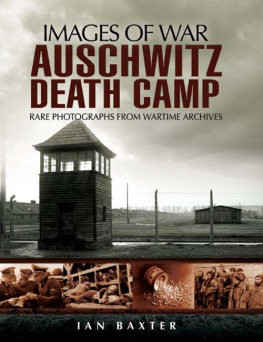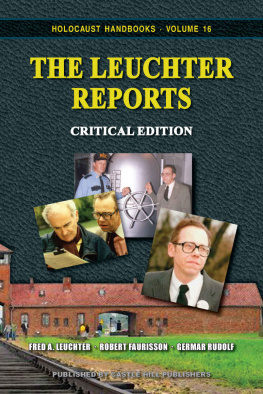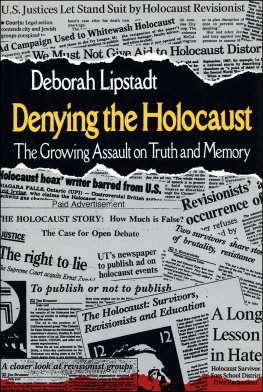
The Case for Auschwitz
The Case for Auschwitz
Evidence from the Irving Trial
Robert Jan van Pelt
Indiana University Press
Bloomington and Indianapolis
This book is a publication of
Indiana University Press
Office of Scholarly Publishing
Herman B Wells Library 350
1320 East 10th Street
Bloomington, Indiana 47405 USA
iupress.indiana.edu
First paperback edition 2016
2002 by Robert Jan van Pelt
All rights reserved
No part of this book may be reproduced or utilized in any form or by any means, electronic or mechanical, including photocopying and recording, or by any information storage and retrieval system, without permission in writing from the publisher. The Association of American University Presses Resolution on Permissions constitutes the only exception to this prohibition.
The paper used in this publication meets the minimum requirements of the American National Standard for Information SciencesPermanence of Paper for Printed Library Materials, ANSI Z39.481992.
Manufactured in the United States of America
The Library of Congress has cataloged the original edition as follows:
Pelt, R. J. van (Robert Jan), date
The case for Auschwitz : evidence from the Irving trial / Robert Jan van Pelt.
p. cm.
Includes bibliographical references and index.
ISBN 0-253-34016-0 (alk. paper)
1. Irving, David John Caldwell, 1938Trials, litigation, etc. 2. Lipstadt, Deborah E.Trials, litigation, etc. 4. Trials (Libel)EnglandLondon. 5. Auschwitz (Concentration camp). 6. Holocaust denial literatureGreat Britain. I. Title.
KD379.5.178 P45 2002
345.41'0256dc21
2001002615
ISBN 978-0-253-02298-1
(pbk. : alk. paper)
1 2 3 4 521 20 19 18 17 16
Preparation and publication of The Case for Auschwitz was generously assisted by the Conference on Jewish Material Claims Against Germany.
The publisher gratefully acknowledges the generous support of the following sponsors:
Douglas and Sandra Barton
Shirley Efroymson-Kahn
Ellen and Tom Ehrlich in honor of Alvin Rosenfeld, Director, Jewish Studies Program, Indiana University
Irving M. Glazer
Leonard and Ruth Goldstein
Mr. and Mrs. Hart N. Hasten
J. William Julian
Barton L. Kaufman
Herbert M. Levetown
Sandy and Art Percy
Frances M. and M. Mendel Piser
Alvrone and Ron Sater
Phyllis and Gary Schahet
Mrs. Ruby Schahet
Melvin Simon
CONTENTS
Preface and Acknowledgments
This book grows out of my involvement as an expert witness in the libel trial brought by David Irving before the British High Court in January 2000, in which Irving sued American historian Deborah Lipstadt, author of Denying the Holocaust, and her British publisher, Penguin Books, for labeling him a Holocaust denier. For the trial I prepared, and subsequently defended in cross-examination, a 700-page report addressing a core issue of the proceedings: the historical evidence for the gas chambers at Auschwitz. The bedrock of Irvings claim that the Nazis had no systematic program to murder all the Jews of Europe, and that the Jews who had died had succumbed to the ordinary violence of war, was his insistence that the Germans had not built extermination camps to kill Jews. Irving justified this assertion by reference to the claim made by one Fred A. Leuchter that there had been no homicidal gas chambers at Auschwitz. In 1988 Irving had seized upon Leuchters report as shattering in the significance of its discovery and had become its publisher and advocate. Irving reasoned that if Auschwitz had no gas chambers, neither did the other extermination camps, and if all the death camps were figments of a perverse imagination, the German murder of six million Jews was a hoax. Irving claimed that the available evidence, or the lack thereof, justified such a conclusion. Lipstadt had argued that Irving had betrayed his vocation as a historian and falsified history when he had accepted Leuchters conclusions without considering the massive amount of evidence that pointed to the existence and operation of the gas chambers at Auschwitz. It was my task, therefore, to help the defense barristers Richard Rampton, Heather Rogers, and Anthony Julius convince the judge that no serious historian who had considered the evidence would have serious cause to doubt that there were gas chambers at Auschwitz. We were successful. On April 11 Justice Charles Gray stated in his verdict that, on the basis of the convergent evidence relied on by the Defendants, he had concluded that no objective, fair-minded historian would have serious cause to doubt that there were gas chambers at Auschwitz and that they were operated on a substantial scale to kill hundreds of thousands of Jews.
The Case for Auschwitz tells the story of how and why Auschwitz became central in the Irving-Lipstadt trial, and why the so-called question of the gas chambers has become a pivot of Holocaust denial, or negationism, as I will call it. More importantly, this book presents the bulk of the evidence I submitted to the court in my expert reportevidence of the use of Auschwitz as an extermination camp in which more than a million people died. Most of these were Jews, and most of them died in gas chambers. Finally, this book explains how Rampton, Rogers, and Julius used this evidence to defeat Irving, and in what way Irving tried to challenge that evidence in court. The material here may, or may not, be sufficient to convince every skeptic that Auschwitz was indeed an extermination camp. It proved sufficient to convince Justice Gray, and it may prove useful to others who may find it necessary to present the case for Auschwitz.
This book not only aims to provide those engaged in the struggle against Holocaust denial with the material introduced and defended in the Irving-Lipstadt trial. It also seeks to respond to the unexpectedly great interest the case generated among the public at large. The day after the verdict The Daily Telegraph commented in its lead article that the Irving case has done for the new century what the Nuremberg tribunals or the Eichmann trial did for earlier generations. And while only future generations will be able to judge if such an assessment was justified, the fact remains that like the earlier war crime trials that first exposed the full measure of Nazi brutality and the special character of the Nazi war against the Jews, the trial was closely followed by the media and generated a lot of discussion.
Press coverage, which had kept up during the more than two months of proceedings, reached its high point on April 12, the day after Justice Gray ruled for the defendants and pronounced Irving a falsifier of history, a right-wing pro-Nazi polemicist, an anti-Semite, and a racist. Cartoonists had their day. The Guardian showed Hitler in the fires of hell, with a guardian demon telling him: Tough luck. He lost. You stay. The Daily Telegraph showed a display table in a bookstore marked David Irvings New Book. The title of the book advertised is That Libel Trial Never Happened. The Times showed a man sitting in his chair reading Irvings autobiography. He tells his wife, Im at the bit when hes recounting his stunning court victory. On a more serious note, the Israeli daily The Jerusalem Post reported that Prime Minister Barak sent Lipstadt a message declaring the outcome of the trial a victory of the free world against the dark forces seeking to obliterate the memory of the lowest point humanity ever reached.
Historians and the practice of writing history were credited with much that day. In a leading article
Next page
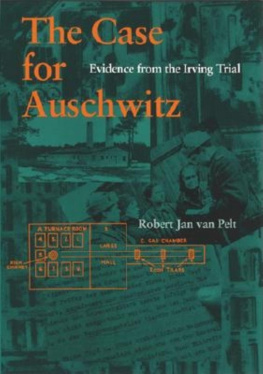
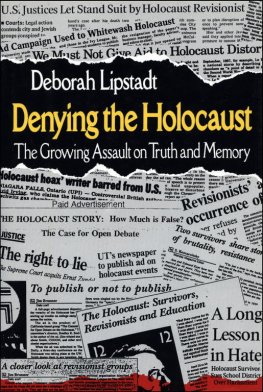
![Deborah E. Lipstadt - Denial [Movie Tie-in]: Holocaust History on Trial](/uploads/posts/book/373085/thumbs/deborah-e-lipstadt-denial-movie-tie-in.jpg)
